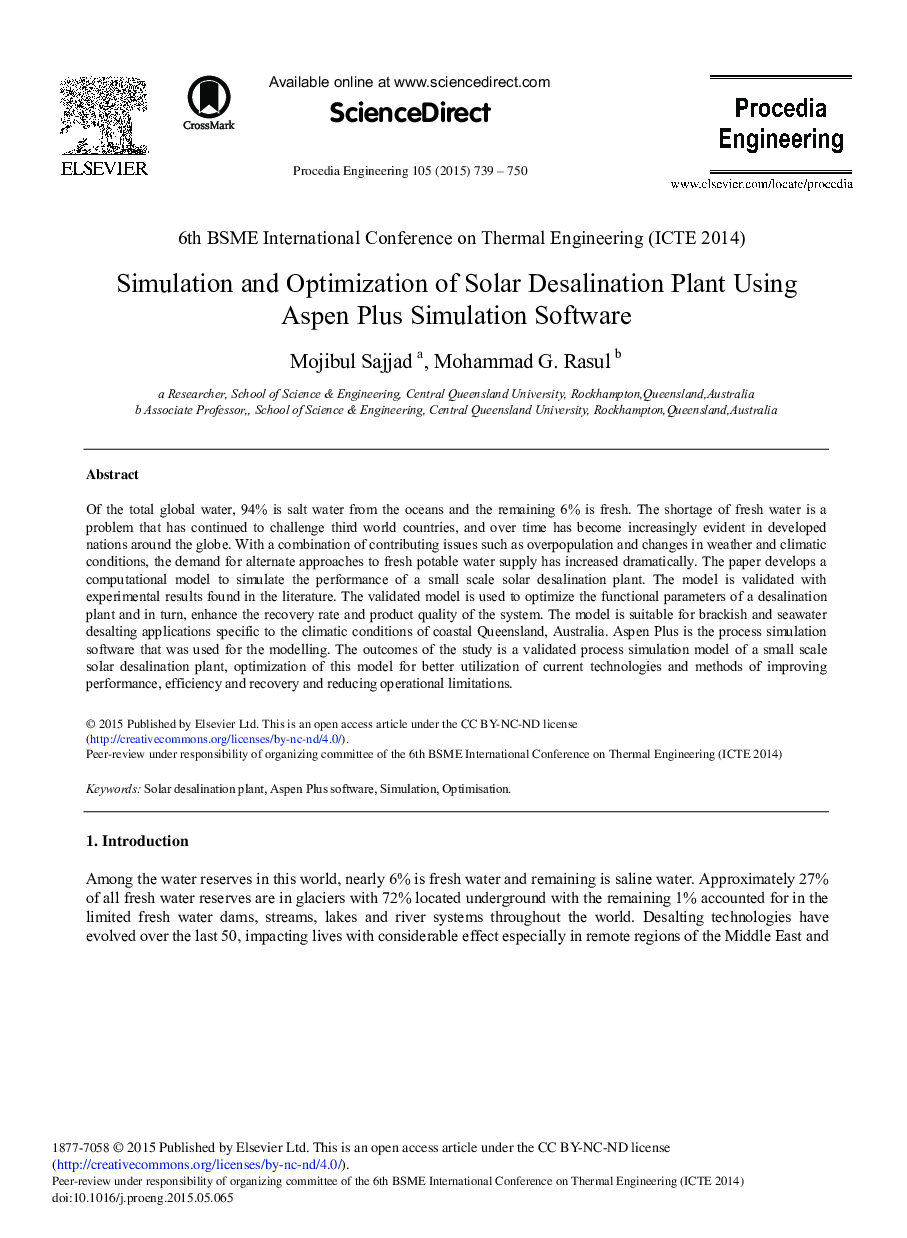| Article ID | Journal | Published Year | Pages | File Type |
|---|---|---|---|---|
| 856523 | Procedia Engineering | 2015 | 12 Pages |
Of the total global water, 94% is salt water from the oceans and the remaining 6% is fresh. The shortage of fresh water is a problem that has continued to challenge third world countries, and over time has become increasingly evident in developed nations around the globe. With a combination of contributing issues such as overpopulation and changes in weather and climatic conditions, the demand for alternate approaches to fresh potable water supply has increased dramatically. The paper develops a computational model to simulate the performance of a small scale solar desalination plant. The model is validated with experimental results found in the literature. The validated model is used to optimize the functional parameters of a desalination plant and in turn, enhance the recovery rate and product quality of the system. The model is suitable for brackish and seawater desalting applications specific to the climatic conditions of coastal Queensland, Australia. Aspen Plus is the process simulation software that was used for the modelling. The outcomes of the study is a validated process simulation model of a small scale solar desalination plant, optimization of this model for better utilization of current technologies and methods of improving performance, efficiency and recovery and reducing operational limitations.
